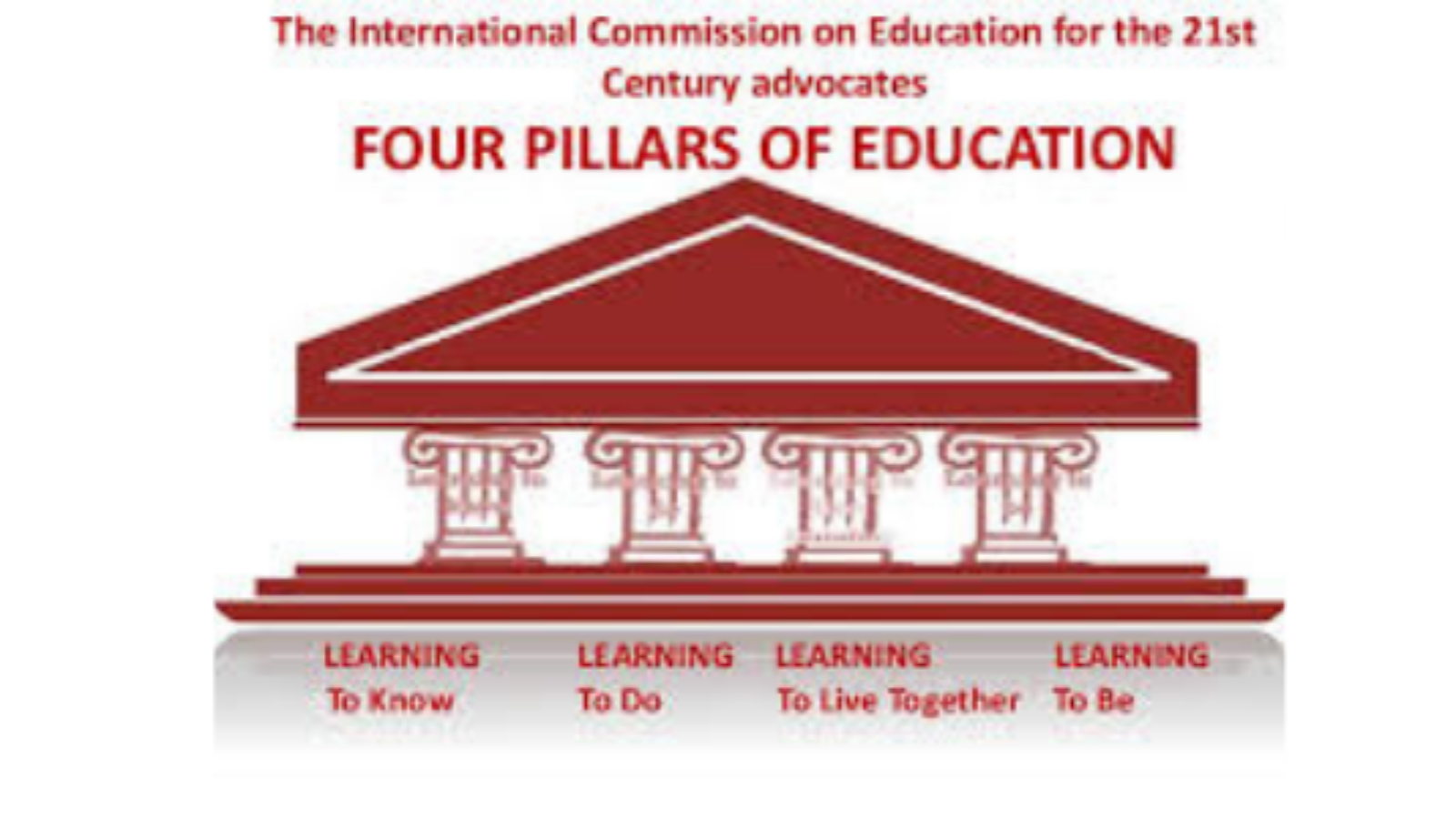The Four Pillars of Education : Delors Report
The Delors Report was a report created by the Delors Commission in 1996. It proposed an integrated vision of education based on two key concepts, ‘learning throughout life’ and the four pillars of learning, to know, to do, to be and to live together. It was not in itself a blueprint for educational reform, but rather a basis for reflection and debate about what choices should be made in formulating policies. The report argued that choices about education were determined by choices about what kind of society we wished to live in. Beyond education’s immediate functionality, it considered the formation of the whole person to be an essential part of education’s purpose. The Delors Report was aligned closely with the moral and intellectual principles that underpin UNESCO, and therefore its analysis and recommendations were more humanistic and less instrumental and market-driven than other education reform studies of the time.
The Delors Report identified a number of tensions generated by technological, economic and social change. They included tensions between the global and the local; the universal and the particular; tradition and modernity; the spiritual and the material; long term and short term considerations; the need for competition and the ideal of equality of opportunity; and the expansion of knowledge and our capacity to assimilate it. These seven tensions remain useful perspectives from which to view the current dynamics of social transformation. Some are taking on new meaning, with fresh tensions emerging. These include patterns of economic growth characterized by rising vulnerability, growing inequality, increased ecological stress, and rising intolerance and violence. Finally, while there has been progress in human rights, implementation of norms often remains a challenge.
The Four Pillars of Education
One of the most influential concepts of the 1996 Delors Report was that of the four pillars of learning. Formal education, the report argued, tends to emphasize certain types of knowledge to the detriment of others that are essential to sustaining human development.
- Learning to know,by combining a sufficiently broad genera! knowledge with the opportunity to work in depth on a small number of subjects. This also means learning to learn, so as to benefit from the opportunities education provides throughout life.
- Learning to do,in order to acquire not only an occupational skill but also, more broadly, the competence to deal with many situations and work in teams. It also means learning to do in the context of young peoples’ various social and work experiences which may be informal, as a result of the local or national context, or formal, involving courses, alternating study and work.
- Learning to live together, by developing an understanding of other people and an appreciation of interdependence – carrying out joint projects and learning to manage conflicts -in a spirit of respect for the values of pluralism, mutual understanding and peace.
- Learning to be,so as better to develop one’s personality and be able to act with ever greater autonomy, judgment and personal responsibility. In that connection, education must not disregard any aspect of a person’s potential: memory, reasoning, aesthetic sense, physical capacities and communication skills.
Formal education systems tend to emphasize the acquisition of knowledge to the detriment of other types of learning; but it is vital now to conceive education in a more encompassing fashion. Such a vision should inform and guide future educational reforms and policy, in relation both to contents and to methods.
The idea of the integrated approach to education reflected in the four pillars of learning has had significant influence on policy debates, teacher training and curriculum development in a range of countries worldwide.
By -ASSISTANT PROFESSOR Ajay Mohan Semwal
DEPARTMENT :B.Ed
UCBMSH Magazine – (YouthRainBow)
UCBMSH WEBSITE – Uttaranchal (P.G.) College Of Bio-Medical Sciences & Hospital
UCBMSH B.ED WEBSITE – Uttaranchal College of Education
UCBMSH NURSING WEBSITE – College Of Nursing UCBMSH
REGISTRATION – Apply Online
For any queries & Admission Call at:8192007206, 8192007210, Or mail us at: admission@ucbmsh.org

Add a Comment